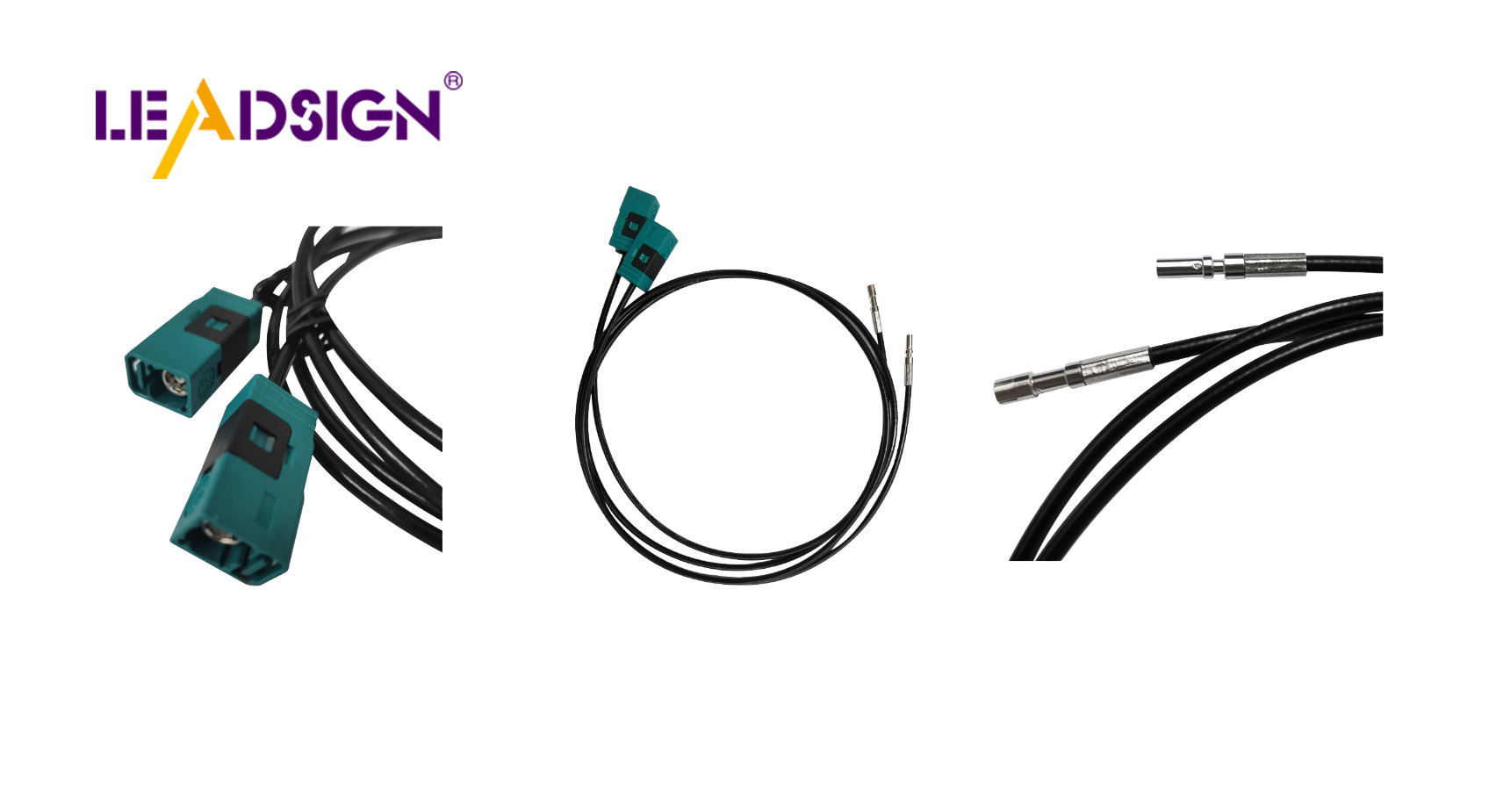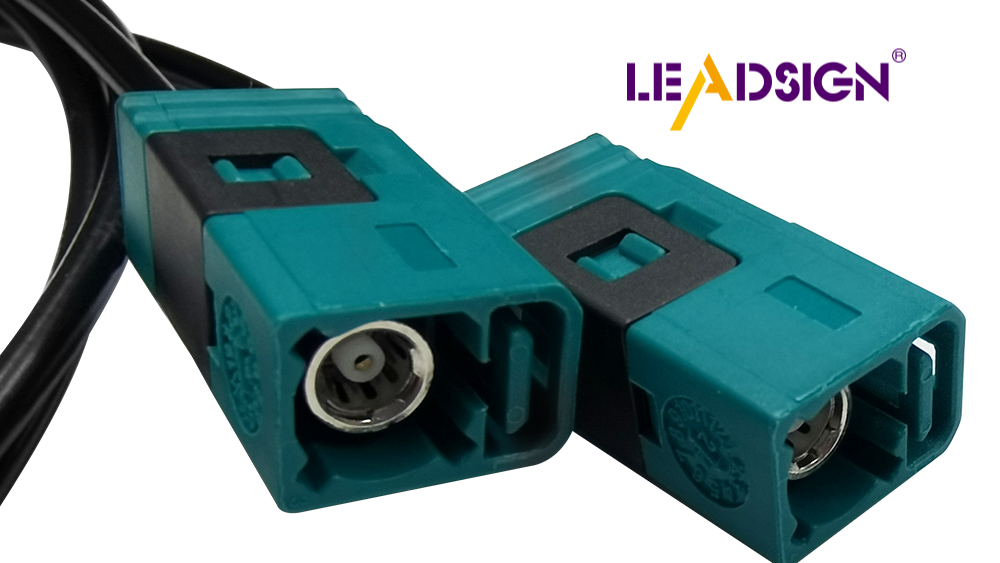Mastering Automotive Wiring Connector Types for Your Vehicle

Understanding automotive electrical connectors types is crucial for your vehicle's safety. These connectors ensure that all electrical components function harmoniously. They prevent hazards such as excessive current or overheating by delivering the appropriate current for your vehicle. There are various types of automotive electrical connectors, each designed for specific applications. Choosing the correct type ensures optimal performance and maintains safe driving conditions.
What are Wiring Connectors?
Definition and Purpose
Wiring connectors are important parts of a car's electrical system. They link circuits to let electricity flow smoothly. These connectors keep the connection strong, stopping any breaks in the current. Using the right connector keeps your car's electrical system safe and working well.
Basic Components of a Connector
A wiring connector has several main parts. The housing shields the inside parts and gives insulation. Inside, there are contacts that carry electricity, usually made of metal for good flow. The locking mechanism holds the connection tight to stop it from coming apart by accident. Knowing these parts helps you pick the right automotive electrical connectors types for your car.
Importance in Vehicle Systems
Role in Electrical Systems
In cars, wiring connectors are key to the electrical system. They join things like lights and sensors so they can work together well. Without good connectors, these parts might not work, causing safety issues. Picking the right ones keeps your car's electrical system strong and dependable.
Impact on Vehicle Performance
Your car's performance depends on good electrical connections. Bad or broken connectors can cause failures that affect many systems like engines or radios. Good quality connectors handle tough conditions and power needs, boosting overall performance. They make sure all systems run well, giving you a safe drive.
By learning about different automotive electrical connectors types and their jobs, you can choose wisely to improve your car's safety and performance.
Types of Automotive Electrical Connectors

Knowing different automotive electrical connectors types helps your car work well. Each connector type has its own job and benefits. Let's look at some common connectors used in cars.
Blade Connectors
Blade connectors are very common automotive electrical connectors types. They have a flat metal piece that fits into a slot.
Features and Applications
Design: Blade connectors are simple and easy to use. The flat blade makes a strong link.
Applications: You see blade connectors in car lights like headlights and taillights. They are also in fuse boxes.
Size Variations: These come in many sizes for different wires and currents.
Pros and Cons
Pros:
Easy to plug in and take out.
Cheap and found everywhere.
Cons:
Not great against water or dust.
Only for low current uses.
Bullet Connectors
Bullet connectors are another favorite among automotive electrical connectors types. They have a round male part that fits into a female socket.
Features and Applications
Design: The bullet shape fits snugly, making it reliable.
Applications: Used in motorcycle wiring or tight spaces in cars.
Durability: Good against shaking, so they work well in vehicles.
Pros and Cons
Pros:
Small size saves room.
Stays connected even with vibrations.
Cons:
Hard to unplug without tools.
Not good for high power needs.
Pin Connectors
Pin connectors are flexible automotive electrical connectors types, with pins fitting into sockets.
Features and Applications
Design: Can have many pins, sending signals or power through one connector.
Applications: Found in complex systems like engine controls or infotainment units.
Customization: Can be made with different pin numbers for special needs.
Pros and Cons
Pros:
Can be tailored for many uses.
Good for sending multiple signals at once.
Cons:
Complex design can make setup hard.
More expensive than simpler ones.
When picking the right automotive electrical connector type, think about current needs, weather conditions, and space limits. Knowing each type's features helps you choose wisely to boost your car’s performance.
Specialty Connectors
Specialty connectors are important in car systems. They have special features for certain uses. These connectors solve problems that regular ones can't fix.
Features and Applications
Design and Functionality: Specialty connectors, like the Micro Blade & Beam, are very thin. This helps save space in small car systems.
Applications: You find these in things like GPS antennas and infotainment systems. They work well where space is tight and signals must be clear.
Customization: Many can be changed to fit what a vehicle needs. This makes them work better for different cars.
Pros and Cons
Pros:
Space Efficiency: Their small size saves room, which is key in modern cars with lots of electronics.
High Performance: They keep signals strong even when conditions are tough. They often have seals to block water and dust.
Versatility: With different ends and contact numbers, they fit many car uses well.
Cons:
Cost: These connectors cost more than regular ones because of their special features.
Complexity: Their complex design can make putting them in or fixing them harder, needing special tools or skills.
When picking specialty connectors, think about signal strength, number of contacts, and if they can swap easily. These help make sure the connector fits your car's needs well.
Picking the Best Connector for Your Car
Choosing the right connector is key to keeping your car's electrical system working well. Here are important things to think about.
Quality Matters
Strong Materials
Pick connectors made from strong materials. Good ones use metals like copper or brass, which help electricity flow and stop rust. The outside should be tough, often made of strong plastic that lasts long. Amphenol Sine Systems makes connectors you can swap out easily, known for being strong and useful in many ways.
Trusted Brands
Choose well-known brands for car connectors. FindPigtails.com has over 350,000 wiring parts, so you’ll find what fits best. Samtec Automotive Interconnect Systems offers fast and dense connectors for high-tech cars. Trusted brands mean good quality and work well.
Weather Concerns
Heat and Cold Protection
Think about the weather your car faces. Connectors need to handle heat changes and wet or dusty places. Find ones with seals that keep water and dirt out. This keeps them working even in bad weather.
Fits Your Car Type
Make sure the connector fits your car's needs. Different cars might need special types based on their systems. Check if it matches your car’s brand and model to avoid problems later.
How to Install and Care
Right Way to Install
Installing correctly is very important for connectors to work well. Follow the maker’s steps when putting them in place securely. Use the right tools so you don’t break them while installing.
Keep Them Working Well
Check your connectors often for any damage or rust. Clean them so electricity flows nicely, and change broken ones quickly. Doing this helps keep your car’s electrical system running smoothly.
By thinking about these points, you can pick connectors that make your car run better and last longer. Focus on quality, weather fit, and good installation to keep everything working its best.
Knowing different automotive wiring connectors types is key for your car's safety and performance. Picking the right connector helps your car's electrical parts work well. Think about quality and weather when choosing.
Expert Insight: "The material of the connector’s shell and seal must insulate electricity well to keep signals steady."
This shows why it's important to pick connectors with strong protection, especially where there's a lot of electromagnetic noise. By focusing on these things, you can make your car last longer and be more reliable.
See Also
Exploring HSD Connectors in Automotive Technology
Navigating Ford Fakra Connectors
The Significance of Fakra Connectors in Today's Cars
Enhancing Auto Data Transfer: Cutting-Edge Connectors and Cables

